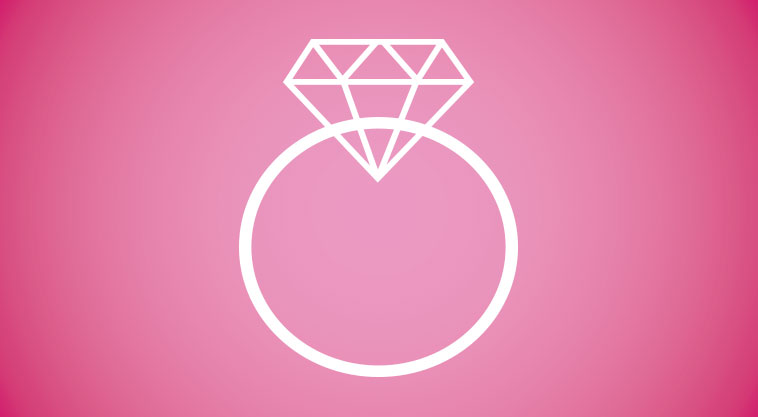Not Sure about Mr. Nice

Very often when a young woman complains that the bochur she’s dating is too nice, what she really means is that she doesn’t find his passive energy attractive
I’m going out with a guy right now and I don’t know how to describe my hesitation other than to say he’s too nice. I know, I know, I should be happy that he’s so nice, and in the middle of the
I’m really torn because this boy has great middos, a sense of humor, and a lot of attributes that I really respect, including his hashkafos. I feel like a brat, but I can’t seem to get past this. Is this enough of a reason to say no?
Not Sure about Mr. Nice
Dear Not Sure,
This is actually one of the question I get asked most frequently. Inevitably, when a girl raises this question, I share a story that happened about 35 years ago, which may or may not have been around the time I was dating.
A young woman was dating a very nice young man. She realized that whenever they had dates sitting down she liked him a lot and whenever they spent the date walking she didn’t like him. She realized that she was uncomfortable standing next to him. Disappointed in herself for her shallowness, she turned to her trusted rebbetzin/mentor and asked, “Am I so shallow as to allow something like height to cause me to nix a shidduch?”
The mentor, being wise (I guess that’s how she became a mentor) replied, “No, you’re not a shallow person. Something else is going on for you. What is it?”
And this nonjudgmental question allowed the young woman to see that she didn’t feel safe or protected around this young man. She found herself wondering if their car ever broke down, would she be the one changing the tire? Deciding that she definitely did not want to be doing any tire changing, she ended the shidduch.
There are many lessons in this story and none of them are about saying no to a man who can’t change a tire. Or to someone who is short. While it’s true that gender roles have become much more fluid in the last 50 years or so, even in our community, there are some intrinsic male and female energies. And while some women have a lot of masculine energy and some men have a lot feminine energy, for the most part they each seek a partner with energy that matches their gender. That is to say, most women want a man who makes them feel safe and protected. Most men want a woman who will nurture and be a good receiver. Stereotypes, but mostly true nonetheless.
Very often when a young woman complains that the bochur she’s dating is too nice, what she really means is that she doesn’t find his passive energy attractive. And that makes a lot of sense, because the male energy is that of a mashpia, which is decidedly active and initiating.
Consider the following scenario. Your date, let’s call him Tzvi, plans a date that will involve a two-hour stroll in a lovely garden. You’re exhausted and request politely that you switch venues to somewhere that involves more sitting and Tzvi graciously acquiesces. Would you find that too nice? Probably not. You’d appreciate the menschlichkeit.
What you wouldn’t appreciate is if Tzvi showed up with no plan at all and said, “I don’t care what we do. What do you want to do?” See, very often niceness is a cover for passivity, a means for the other person to not take ownership of a decision. And it doesn’t always feel good to be on the other end of that.
This is about who owns the responsibility, not who does what — nor how it gets done. Going back to our car at the side of the road, not every bochur has to know how to change a tire in five minutes or less. (Pro tip for bochurim: It does help. You should learn.) But his demeanor should evoke a sense of confidence that he’s got this. He can call AAA, he has Chaveirim’s number at his fingertips, he’ll figure it out. Whatever he does, he gives his date, and ultimately his wife, a sense that she’ll be cared for. What we’re really talking about is projecting a sense of confidence and masculinity — internal traits completely unrelated to height, dexterity, or any other external factor.
We ask a lot of our girls these days. In many instances they’ll be taking over the traditionally male role of providing for the family. And we do not cut them any slack in the feminine role. They’re still expected to stay fit and beautiful and nurturing at the same time. And to respect their husbands who sometimes are no longer required to fulfill the roles that naturally evoke that respect.
So the question you need to ask yourself is this: Is my hesitation actually related to his niceness? Or is it about a lack of initiative and drive? Do I feel like he’s a gavra? And if he has so many other attributes that evoke my respect, do they feed that need for initiative — and is that enough?
Only you can answer those questions regarding this specific young man. Yet I believe that as a culture, these questions will continue to plague us as we deal with the evolving roles of men and women, and the price we are paying for the shift.
Hatzlachah making this decision. May Hashem guide you to find your priorities and help you hear the internal voice telling you what’s truly important to you.
Sara
Sara Eisemann, LMSW, ACSW, is a licensed social worker and a dating mentor. She lectures on topics related to relationships, personal development, authenticity, and growth. She welcomes questions, comments, feedback, and interaction at matchquest@mishpacha.com.
(Originally featured in Family First, Issue 768)
Oops! We could not locate your form.






